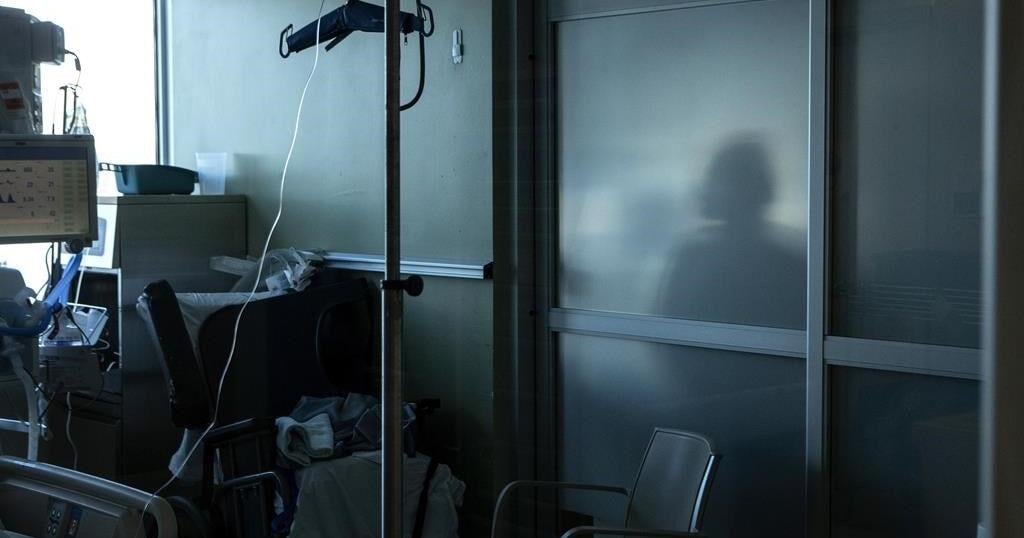
Masks will be mandatory in Grey-Bruce in enclosed public spaces within 10 days, Dr. Ian Arra announced Tuesday, July 7, 2020. (file photo)
People in Grey-Bruce will soon be required to wear masks in indoor settings where there is public interaction.
Dr. Ian Arra, the medical officer of health, said details remain to be finalized, including how enforcement would work. But there will be exemptions based on the honour system for people with conditions that prevent mask-wearing, he said.
“With reopening and less compliance, we might see more risk of transmission. And that’s why we pulled the trigger on this mandating to get that added benefit before things go to increased cases,” Arra said in an interview Tuesday afternoon.
He anticipates mask use will increase after the order. According to a news release to announce the mask order, expected to be made within 10 days, there is evidence doing so decreases the transmission of the disease through respiratory droplets.
Arra stressed masks are no silver bullet, just added protection to augment the same safety practices that have been successful at limiting transmission of the virus since mid-March, such as hand-washing and physical and social distancing.
The approach will be to empower businesses with an order to create a policy requiring masks among customers and employees, with the option of asking people to leave if they don’t comply, possibly utilizing trespass laws.
It would apply to a grocery store, for example, but not the back offices of the store.
Arra said in an interview he’s inclined to consider business exemptions in cases where businesses are already employing effective measures to reduce the spread of COVID-19, such as face shields and physical distancing, which might make mask-wearing redundant, he said.
He said he met electronically with mayors of all 17 Grey-Bruce municipalities Friday and received general agreement that an order should be issued, followed by municipal bylaws governing mask-wearing, which take longer.
He said he wants to consult more to help refine the order. If it were signed Friday, the order would provide time before people would have to comply, Arra said.
He said data and observations of public behaviour drove his decision now to require mask-wearing in places the public may gather indoors.
The epidemiological data and compliance with advice to wear a mask has remained steady, he said. But physical and social distancing compliance has fallen off.
“We have seen evidence of lower compliance with those things. And that’s expected. It’s difficult to sustain these interventions, social distancing and physical distancing for so long.”
Arra said the order is also being issued now for consistency with other jurisdictions that are also implementing mask-wearing requirements.
Before the order comes into effect, Arra said there must be ways to provide equity for all citizens, including the homeless who, without access to free masks, would be in violation of his order.
Bruce Power’s 150,000 mask donation should address that, he suggested.
* * *
A surge in requests for testing at one assessment centre from people claiming the health unit sent them concerns the medical officer of health.
Dr. Ian Arra issued a news release Tuesday featuring an example, the discovery of a case of COVID-19 on Friday, July 3 in West Grey. News of the case got around the community quickly and prompted some people to show up at an assessment centre falsely claiming the health unit told them to get tested, Arra said. Some also called the health unit or shared concerns on social media.
Arra said this was driven by anxiety. He said he issued the release to reassure the public that if they didn’t get a call from public health “it’s a good day.”
He said health unit staff effectively trace contacts of any COVID-19-infected people within 24 hours. “We asked a number of people, a handful of people, (who) needed to self-isolate, go get tested, observe for symptoms.”
Arra said it was quiet over the weekend but then Tuesday morning someone at an assessment centre said they saw 50 extra people compared to any other day, and many of them said we were sent by public health.
Arra called that “alarming, why somebody would claim that they were asked by public health to go if public health didn’t.” He didn’t know if all those who claimed public health sent them originated with the West Grey case.
He offered reassurance in the release: “If there was potential risk of transmission, full response and control is implemented. The lack of hospitalization and death shows the high success rate of our outbreak management.”
“Ontario provincial government made testing widely available to all. A person does not need to falsely claim direction from public health to access testing.”
The release said wrongly claiming the health unit sent you for testing could introduce bias in the lab data.
* * *
Just two active reported cases of COVID-19 remain in Grey-Bruce, the Grey Bruce Health Unit announced Tuesday.
There were no new cases reported in the 24 hours prior to 3:30 p.m.
In all, there have been 114 cases, 107 recovered and five cases referred to other health units. There have been zero deaths and currently no one is hospitalized for the virus. Twenty-eight health care workers working in Grey-Bruce caught the bug.
There are currently no long-term care or retirement home outbreaks of COVID-19.























